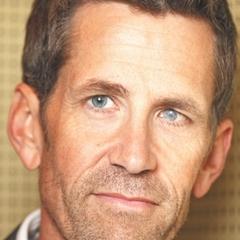The prose was dense, with a thorough absence of clarity, no clearings, no cracks that would allow even the thinnest ray of light, no loopholes, no compromises. You had to respect the guy.
Lara Vapnyar, Still Here
(A)lmost all the best novelists can be read by the interested and committed reader. However great a writer is -- Proust, say, or James Joyce -- the fact that so many willing and intelligent readers find them difficult, even impenetrable, is surely a mark, albeit in pencil, against them.
Susan Hill, Howards End Is on the Landing
Ask a hundred readers to name the three greatest living writers and you will get a hundred different lists. If you want a thousand different lists, ask a thousand different readers. Who we happen to put on our own list depends on our individual taste and on whose books we have happened to read and enjoy. It also depends on which of the above quotations makes the most sense to us. Are you someone, like the character in Lara Vapnyar's novel, who assumes that if you don't understand a book, it must be pretty good? Or, like Susan Hill, do you believe the best writers are those who can make themselves understood, even when writing about difficult things?
Strange as it seems, some people do fall into that first group. Many college professors, book critics and various intellectuals, real or imagined, seem to feel this way. They favor books that only they and a few others can really appreciate, whether they actually understand these books or not.
 |
| Donna Tartt |
 |
| Ann Patchett |
My own list of the three best writers today, always subject to change, includes Ann Patchett, Donna Tartt and Jess Walter. In each of the past four years, the best novel I have read has been by one of these authors. An honorable mention list would include William Boyd, Larry Watson and Anne Tyler. I don't know about Boyd and Watson, but each of the others has had novels on the best-seller lists. In the view of some, that alone would disqualify these writers from being among the elite. If ordinary people read their books, they must not be very good.
 |
| Jess Walter |
Yet such writers as Charles Dickens, Mark Twain, Thomas Hardy and Anthony Trollope, all studied in college literature classes, were best-selling authors in their day. They satisfied the masses, while still giving scholars much to probe and dissect. I believe the same is true of the contemporary authors I mentioned. I am in the midst of
Art and the Accidental in Anne Tyler by Joseph C. Voelker, a literature professor who studied Tyler's early novels. Some of Patchett's work, especially
State of Wonder and
Bel Canto, has received scholarly study. I don't know about the others, but I suspect they would lend themselves to serious study if anyone dared to do so.
The best works of literature offer something different for different readers. Those who just want a good story will find it in Tartt, Patchett and Walter as in Dickens, Twain and Hardy. Those who want deeper meaning will find that, as well.
Those words above from Susan Hill come near the end of her discussion of novelist V.S. Naipaul. She says of him, "He is a complex thinker, a magnificent prose writer, a painter on a broad canvas, able to portray not just a place but a continent and a philosophy, a history and a civilization. Yet he is always clear, always readable, deep but never obscure, which surely adds to the measure of his achievement."
Deep but never obscure. That sounds to me like a great definition of a great writer.



No comments:
Post a Comment